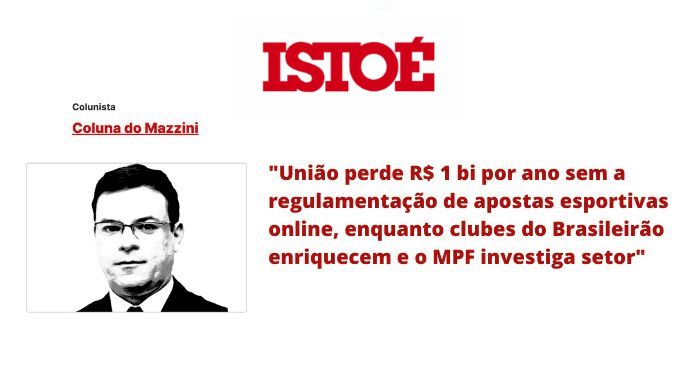The lack of adequate regulation for sports betting leaves Brazil without a major source of income. A value that could be used to leverage the economy, invest in health and education, and help the country’s growth in general.
The sports betting sector is one of the largest segments of world entertainment, with supporters and fans spread across all continents. In Brazil, betting is even more popular as, with a people passionate about football and a culture linked to betting games, we have a great preference for giving our predictions on sports events and competitions.
The journalist, Leandro Mazzini, recently published in his column in VEJA, a text that talks about how much we are losing due to the lack of regulation of sports betting.
Check out Mazzini’s text on sports betting below
The Government is losing more than BRL 1 billion a year in tax collection with the lack of regulation of online sports betting, already passed by law.
And why the delay? A mystery that President Jair Bolsonaro, who promised the regulation still in press at the Civil House, does not reveal.
União loses BRL 1 billion a year without online sports betting regulation, while clubs in the Brasileirão get rich and the MPF investigates the sector
The Minister of Justice, Anderson Torres, drew attention to the bottleneck and asked for haste — there is already a federal investigation into the operations in Brazil. He gained support from Senator Flávio Bolsonaro (PL-RJ) and, of course, from the Minister of Economy, Paulo Guedes.
The well-known betting sites are giants from abroad, who don’t leave a penny of tax here — and only the private sector profits. The “bets” are sponsoring teams from the A series and many from the B series, from the CBF. To name a few: Betano invested R$ 15 million in online media. PixBet closed BRL 185 million with FIFA and another BRL 180 million with clubs in the Brasileirão this year. SportingBet invested BRL 120 million in media and a Brazilian TV channel.
